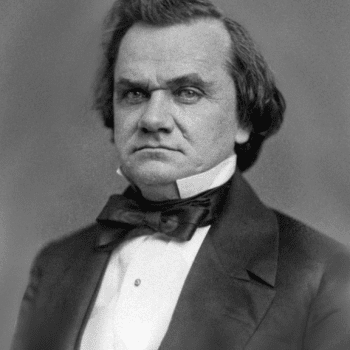Obama and his tea party adversaries have something important in common — disdain for the practice of politics within the Framers’ institutional architecture. He and they should read Jonathan Rauch’s “Rescuing Compromise” in the current issue of National Affairs quarterly.
“Politicians,” Rauch notes, “like other people, compromise because they have to, not because they want to.” So Madison created a constitutional regime that by its structure created competing power centers and deprived any of them of the power to impose its will on the others.
The Madisonian system, Rauch says, is both intricate and dynamic: “Absent a rare (and usually unsustainable) supermajority, there is simply not much that any single faction, interest, or branch of government can do. Effective action in this system is nothing but a series of forced compromises.”
Rep. Tom Cole, who represents southwest Oklahoma, has a PhD in British history and studied at the University of London, says some of his colleagues in the House of Representatives “think they are in the House of Commons.” That is, they have not accepted the fact that, in the Madisonian system, legislative and executive powers are separated.
By this separation, Rauch writes, Madison built “constant adjustment into the system.” His Constitution is a “dynamic political mechanism” under which no faction ever prevails with finality. This is because there is no finality:
“Forcing actors to bargain and collaborate slows precipitous change while constantly making negotiators adjust their positions. . . . The requirement to bargain and find allies provides new ideas and entrants with paths into politics and ways to shake up the status quo. But that same requirement prevents upheaval by ensuring that no one actor can seize control, at least not for long.”
Obama, who aspires to be Washington’s single actor, has said of his signature achievement: “I would have loved nothing better than to simply come up with some very elegant, academically approved approach to health care, and didn’t have any kinds of legislative fingerprints on it, and just go ahead and have that passed. But that’s not how it works in our democracy. Unfortunately, what we end up having to do is to do a lot of negotiations with a lot of different people.”
Obama wanted something simple rather than a product of Madisonian complexity. He wanted something elegantly unblemished by “any” messy legislative involvement, other than Congress’s tug of the forelock at final approval. It is, Obama thinks, unfortunate that he had to talk to many people.
He and some of his tea party adversaries share an impatience with Madisonian politics, which requires patience. The tea party’s reaffirmation of Madison’s limited-government project is valuable. Now, it must decide if it wants to practice politics.
Rauch hopes there will be “an intellectual effort to advance a principled, positive, patriotic case for compromise, especially on the right.” He warns that Republicans, by their obsessions with ideological purity and fiscal policy, “have veered in the direction of becoming a conservative interest group, when what the country needs is a conservative party .”
A party is concerned with power , understood as the ability to achieve intended effects. A bull in a china shop has consequences, but not power, because the bull cannot translate intelligent intentions into achievements. The tea party has a choice to make. It can patiently try to become the beating heart of a durable party, which understands this: In Madisonian politics, all progress is incremental. Or it can be a raging bull, and soon a mere memory, remembered only for having broken a lot of china. Conservatives who prefer politics over the futility of intransigence gestures in Madison’s compromise-forcing system will regret the promise the tea party forfeited, but will not regret that, after the forfeiture, it faded away.
















